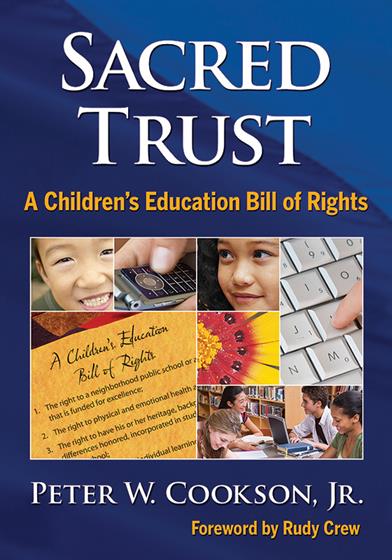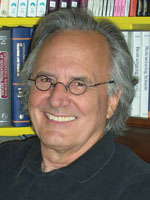Foreword
Acknowledgements
About the Author
Introduction: A Measure of Our Soul
Chapter One: The Power of People and the Purpose of Public Education
All Children Dream
Educationally Experimenting on the Poor
Madison was Right: A New Policy Framework
Turning Dreams into Reality
The Obtainable Utopia
Book Study Questions
Possible Action Steps
Suggested Further Reading
Chapter Two: The Right to a Safe, Healthy, World-Class Pubic School
Right Number 1: The right to a neighborhood public school or a public school of choice that is funded for excellence
The Great Unequalizer
Getting to the Real Issues
Money---Spent Wisely---Does Matter
Reclaiming Horace's Dream
Book Study Questions
Possible Action Steps
Suggested Further Reading
Right Number 2: The right to physical and emotional health and safety
Do No Harm: The First Obligation
Basic Justice Requires Basic Care
Health and Social Health
Book Study Questions
Possible Action Steps
Suggested Readings
Chapter Three: The Cultural and Individual Rights of Students
Right Number 3: The right to have his or her heritage, background, and religious differences honored, incorporated in study, and celebrated in the culture of the school
Unity Within Diversity
The Open Mind and the Open Society
The Empathic Civilization
The Classroom Is the World
Book Study Questions
Possible Action Steps
Suggested Further Reading
Right Number 4: The right to develop learning styles and strategies to the greatest extent possible
Doubt and Its Virtues
The Mismatch Between Research and Practice
Maximizing Children's Talent Through Individualization
Inquiry as a Way of Life
Book Study Questions
Possible Action Steps
Suggested Further Reading
Chapter Four: The Right to High Quality Instruction and School Leadership
Right Number 5: The right to an excellent and dedicated teacher
Why Don't We Ask the Teachers?
Elevating Teaching
Practical Idealism Works
Book Study Questions
Possible Action Steps
Suggested Further Reading
Right Number 6: The right to a school leader with vision and educational expertise
Leadership for 21st-Century Schools
National Educational Leadership
A School Without Vision Is Lost
Book Study Questions
Possible Action Steps
Suggested Further Reading
Chapter Five: The Right to World-Class 21st-Century Curriculum and Technology
Right Number 7: The right to a curriculum based on relevance, depth, and flexibility
Boredom--The Lucky Two Percent
Virtual Socrates
Eradicating Boredom
Book Study Questions
Possible Action Steps
Suggested Further Reading
Right Number 8: The right of access to the most powerful educational technologies
Learning in the Electronic Era
Why a Right to 21st-Century Communication Technologies?
Technology, Technopoly, and Cyber Sanity
What Would Socrates Say?
Book Study Questions
Possible Action Steps
Suggested Further Reading
Chapter Six: The Right to Equality of Educational Opportunity
Right Number 9: The right to fair, relevant, and learner-based evaluations
In the Belly of the Beast
Why a Right to Fair Evaluation?
The Einstein Factor, the Picasso Possibility, and the Sanctity of Natural Genius
Book Study Questions
Possible Action Steps
Suggested Further Reading
Right Number 10: The right to complete high school
The Tragic Consequences of Educational Neglect
Why a Right to Graduate?
What Would the Founders Say?
Book Study Questions
Possible Action Steps
Suggested Further Reading
Chapter Seven: The Right to Good Government
21st-Century Government and a "Sense of the People"
A New Department of Education---A National "Seminary of Learning"
Organizing for Learning
The Dream Recaptured
Book Study Questions
Possible Action Steps
Suggested Further Reading
Resource 1: The Historic Issue of Equity and Excellence
Resource 2: The Virginia Declaration of Rights
Resource 3: Education and the Peace Dividend
Resource 4: Principles of Multicultural Education
References
Index



